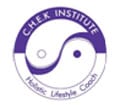Quercetin is a natural flavonoid found in a variety of fruits, vegetables, and grains.
Known for its potent antioxidant and anti-inflammatory properties, quercetin has gained significant attention in the health and wellness community.
Let’s explore the benefits of quercetin, practical examples of how to incorporate this powerful compound into your diet, and suggests additional ways to maximize its benefits.
Benefits of Quercetin
1.Powerful Antioxidant Properties:
Quercetin is rich in antioxidants, which play a crucial role in protecting your body from damage caused by free radicals.
Free radicals are unstable molecules that can damage cells, leading to chronic diseases and aging.
By neutralizing these harmful molecules, quercetin helps to reduce oxidative stress, which is linked to various health issues including heart disease, cancer, and neurodegenerative disorders.
2.Anti-Inflammatory Effects:
Chronic inflammation is a major contributor to many serious health conditions, such as arthritis, diabetes, and even Alzheimer’s disease.
Quercetin works by inhibiting the production of inflammatory molecules, such as cytokines and histamines.
This reduction in inflammation not only helps in managing chronic conditions but also promotes overall health and well-being.
3.Supports Heart Health:
Cardiovascular health is crucial for overall wellness, and quercetin has been shown to play a significant role in promoting heart health.
It can help lower blood pressure by improving the function of the inner lining of blood vessels (endothelium) and reducing the stiffness of arteries.
Additionally, quercetin can improve cholesterol levels by increasing ‘good’ HDL cholesterol and decreasing ‘bad’ LDL cholesterol.
These effects contribute to a reduced risk of heart attacks, strokes, and other cardiovascular diseases.
4.Enhances Immune Function:
Quercetin has been found to enhance immune function by modulating the immune response, making it more effective at fighting off pathogens like viruses and bacteria.
This is particularly important during flu season or times of high stress, where the immune system might be compromised.
5.Potential Anti-Cancer Properties:
Quercetin has shown promise in cancer prevention by inhibiting the growth of cancer cells and promoting apoptosis, the process by which damaged or abnormal cells are naturally destroyed by the body.
While more research is needed, these findings suggest that quercetin could be a valuable addition to a cancer-prevention strategy.
Quercetin and Exercise Performance
Quercetin has gained attention for its potential to enhance exercise performance and recovery.
Research suggests that quercetin can improve endurance by increasing mitochondrial biogenesis, the process by which new mitochondria are formed in cells.
This leads to improved energy production and stamina, which can be particularly beneficial for athletes and individuals engaged in intense physical activity.
Additionally, quercetin’s anti-inflammatory properties may aid in reducing muscle soreness and recovery time after strenuous exercise.
By lowering the levels of histamine—a compound released during allergic reactions and inflammation—quercetin can help alleviate the discomfort associated with muscle inflammation and fatigue.
For those looking to enhance their workout performance and recovery, incorporating quercetin-rich foods or supplements into their routine may provide these benefits.
Foods Rich in Quercetin and Recommended Dosages
Incorporating quercetin into your diet is relatively easy as it is found in a variety of common foods.
The recommended daily intake of quercetin for both adults (500-1000 mg) and children (100-300 mg).
Some of the best sources of quercetin include:
– Onions: One of the highest dietary sources of quercetin, particularly red onions. Recommended intake: 100 grams of raw onion can provide around 30-50 mg of quercetin.
-Apples: Particularly rich in quercetin, especially in the skin. Recommended intake: 1 medium apple (with skin) can provide approximately 10 mg of quercetin.
– Berries: Berries like cranberries and blueberries are also good sources. Recommended intake: 100 grams of berries can provide between 3-10 mg of quercetin.
– Grapes and Red Wine: Both grapes and red wine are known to contain significant amounts of quercetin. Recommended intake: A glass of red wine (150 ml) can provide about 2 mg of quercetin, while 100 grams of grapes can provide 3-5 mg.
– Broccoli and Kale: These cruciferous vegetables are packed with quercetin and other beneficial nutrients. Recommended intake: 100 grams of broccoli or kale can provide approximately 3-8 mg of quercetin.
Conclusion
Quercetin is a powerful flavonoid that offers a wide range of health benefits, from reducing inflammation to supporting heart health and enhancing immune function.
Its potential to improve exercise performance and recovery makes it particularly appealing for those with active lifestyles.
By incorporating quercetin-rich foods into your diet or considering appropriate supplements, you can harness these benefits and improve your overall well-being.
Whether you are looking to prevent chronic disease or simply boost your health, quercetin is a valuable addition to any wellness strategy.
Cameron Corish has been caring and achieving results for the local Wishart, Mansfield and Mt Gravatt community for over 10 years. Together with the Core Health Coaching Team, he takes a multi-disciplined and holistic approach to health and fitness addressing the physical, mental and emotional aspects of one’s health.
Ready to feel and look your best? Book a time for a FREE chat and see how we can make a difference in your life. Book here calendly.com/corehealthcoaching or email Cameron at cameron@corehealthcoaching.com.au
Research References
Boots, A. W., Haenen, G. R., & Bast, A. (2008). Health effects of quercetin: From antioxidant to nutraceutical. European Journal of Pharmacology, 585(2-3), 325-337.
Li, Y., Yao, J., Han, C., Yang, J., Chaudhry, M. T., Wang, S., … & Yin, Y. (2016). Quercetin, inflammation and immunity. Nutrients, 8(3), 167.
Egert, S., Bosy-Westphal, A., Seiberl, J., Kurbitz, C., Settler, U., Wolffram, S., … & Müller, M. J. (2009). Quercetin reduces systolic blood pressure and plasma oxidised low-density lipoprotein concentrations in overweight subjects with a high-cardiovascular disease risk phenotype: a double-blinded, placebo-controlled cross-over study. British Journal of Nutrition, 102(7), 1065-1074.
Somerville, V. S., Braakhuis, A. J., & Hopkins, W. G. (2018). Effect of flavonoids on upper respiratory tract infections and immune function: A systematic review and meta-analysis. Advances in Nutrition, 9(5), 465-488.
Davis, W., Murphy, E. A., & Carmichael, M. D. (2009). Quercetin reduces susceptibility to influenza infection following stressful exercise. American Journal of Physiology-Regulatory, Integrative and Comparative Physiology, 296(2), R362-R368.
Somerville, V. S., Braakhuis, A. J., & Hopkins, W. G. (2018). Effect of flavonoids on upper respiratory tract infections and immune function: A systematic review and meta-analysis. Advances in Nutrition, 9(5), 465-488.
Davis, W., Murphy, E. A., & Carmichael, M. D. (2009). Quercetin reduces susceptibility to influenza infection following stressful exercise. American Journal of Physiology-Regulatory, Integrative and Comparative Physiology, 296(2), R362-R368.














